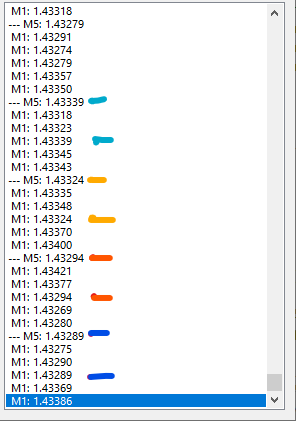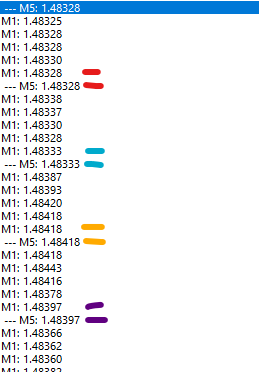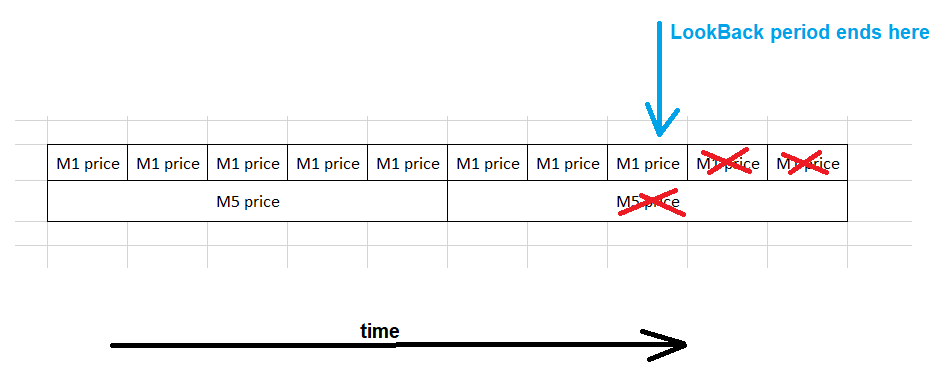Posted By: NorbertSz
Series, shifting and timeframes - 09/06/22 18:03
Dear all,
Could you help me understand what am I missing?
I attached the results.
How is it possible that the M1 middle candle is determining the closing price of the M5 candle? Shouldn't it be the last one?
The expected result are the following:
Thank you!

Could you help me understand what am I missing?
Code
function run(){
BarPeriod = 1;
LookBack = 240*100;
StartDate = 20100101;
EndDate = 20100201;
set(NOSHIFT); //shift manually
asset("EURUSD");
vars priceM1 = series();
vars priceM5 = series();
if (is(INITRUN)){
priceM1 = series(0, 100);
priceM5 = series(0, 100);
}
TimeFrame = 1;
shift(priceM1, priceClose(), 100);
TimeFrame = 5;
if (frame(0)) shift(priceM5, priceClose(), 100);
if (!is(LOOKBACK)){
int i, j;
for (i=0; i<10; i++){
printf("\n--- M5: %.5f", priceM5[i]);
for (j=0; j<5; j++){
printf("\n M1: %.5f", priceM1[i*5+j]);
}
}
quit(0);
}
}
I attached the results.
How is it possible that the M1 middle candle is determining the closing price of the M5 candle? Shouldn't it be the last one?
The expected result are the following:
Code
--- M5 priceE M1 priceA M1 priceB M1 priceC M1 priceD M1 priceE ...
Thank you!


